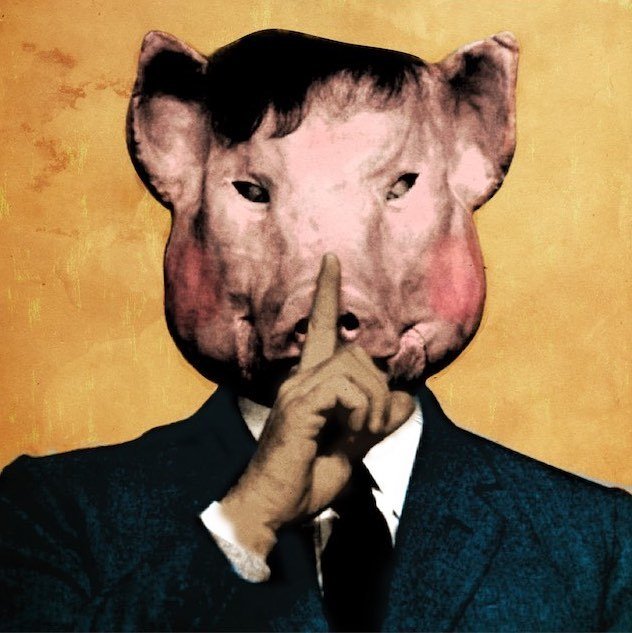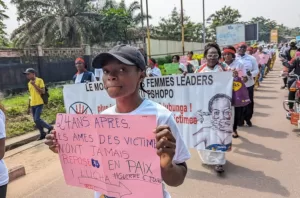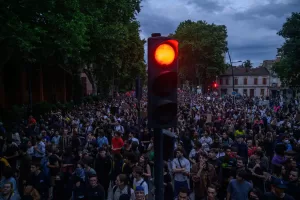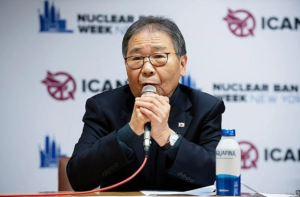Richard D. Wolff
In January 2020, the NASDAQ stock market’s index stood just under 10,000. In the March crash, it fell to 7,000. As of July 10, 2020, it hit 10,600. The U.S. government’s economic policies produced a “recovery” for the rich who own the vast bulk of stocks. Their holdings are worth more now than before COVID-19 hit us. The other major benchmarks for securities, the Dow Jones Industrial Average and the Standard and Poor 500, show similarly dramatic, slightly smaller recoveries.
Massive government economic intervention—what most of its current beneficiaries have always denounced—subsidized those recoveries. The Federal Reserve pumped unprecedented amounts of new money into the U.S. economy after mid-March. That money poured into the stock market and fueled its rise. The U.S. Treasury provided unprecedented direct cash supports to much of corporate America.
Over the same time, government economic support for the working class was too little, too late, and totally inadequate to what could and should have been done. In their unequal impacts, government economic policies were cruel and unjust. In this, they resemble government public health policies. With under 5 percent of the world’s population, the United States accounts for about 25 percent of COVID-19 cases and about 24 percent of COVID-19 deaths globally. All but the most ideologically blinded (and government supporters) know what such a statistic means.
I focus here on how the government’s economic policies affected corporations versus employees, the rich versus the middle class and the poor. Direct government support sustained most corporations. Bigger and richer corporations hire more and better lobbyists, make larger actual or potential donations to politicians and parties, and so on. They thus got big portions of government help. In general, the pandemic and crash hurt medium and small businesses more than big ones, while the latter got disproportionate government help. Government policies likely worsened the relative decline of small and medium businesses. Concentration and monopolization tendencies within U.S. capitalism strengthened.
The U.S. government’s monetary policies (executed by the Federal Reserve) undertook to rescue the stock market as priority number 1. The Fed pumped in massive amounts of new money via very low-interest loans to banks and by directly buying corporate debt and U.S. government debt. In a collapsed economy with tens of millions of unemployed, little of that new money flowed into productive investments, rehiring workers, or enterprise expansions. Those did not offer attractive profits. Instead, the new money went where profits could still be made: the stock markets. Hence they recovered.
Banks, corporations, and the rich used most of the new money to buy stocks from one another. That drove up stock prices. Each purchase by one Fed beneficiary was later sold to another Fed beneficiary at a higher price. Such capital gains encouraged repetitions or “stock flipping” (rather like real-estate hustlers’ “house flipping” before the 2008 mortgage collapse crisis). As this stock market bubble continues to build, anxiety about eventual bursting rises.
Recoveries for corporations and the rich were not matched by what government policies achieved for most employees. The differences were stark. Employers fired more than 40 million employees who were thus forced to file for unemployment benefits. The government did not rehire those millions (to undertake COVID-19 testing of the U.S. population, a Green New Deal for infrastructure, etc.). The unemployed faced mounting difficulties in meeting their financial obligations.
Neither GOP nor Democratic leaders generated anything like the set of government programs that saved the working class from greater catastrophe during the 1930s Great Depression. Then, FDR’s New Deal included establishing Social Security to provide monthly checks for all over 65, federal unemployment insurance, a minimum wage, and a federal jobs program that employed many millions of those fired by private employers.
It wasn’t just incomes that were lost by the millions who have been unemployed since March (losses usually far above the $1,200 check given to many and the extra $600 per week for the insured unemployed). No guarantee was provided that their old jobs would be available to them again or that their eventual wages and benefits would be what they were before COVID-19. When would their unemployment insurance fall or end? If they refused to return to unsafe workplaces (given that most Americans have still not been tested for COVID-19), would they lose jobs and eligibility for unemployment insurance? Excruciating anxiety added to the other sufferings of being unemployed in pandemic America. Many millions of unemployed now face near certainty that their former jobs are forever gone. They have thus lost the seniority, work relationships, connections, skills, and links to home, community, children’s’ schools, etc., that those jobs entailed.
Those who kept their jobs so far are nevertheless also threatened by today’s mass unemployment. Employers can now confront their employees with wage and/or benefit reductions and other deteriorations of working conditions. If employees refuse, they risk getting fired and replaced by the increasingly desperate unemployed. Since employees know that, most knuckle under. Recent U.S. Bureau of Labor Statistics reports confirm that wages are declining with further declines widely predicted. Others who kept jobs and incomes but performed them from home encountered all sorts of new difficulties and expenses. For example, full-time air conditioning for stay-at-home workers and/or their children added hundreds of dollars to millions of affected workers’ monthly utility bills.
Social movements across the country—Black Lives Matter, activism against eviction and for rent moratoria, strikes and job actions for COVID-19-safe working conditions, calls for debt relief, etc.—all attest to serious suffering and growing pushback. Those movements represent the other side of the recovery celebrations among corporations and the rich and the politicians and media they own. Rising stock markets and corporate bailouts—their recoveries—enabled the already richest to become richer still. Jeff Bezos, the CEO of Amazon, added $24 billion to his already more than $100 billion personal wealth. Meanwhile, the U.S. working class remains far, far from any comparable “recovery.” Inequality in the United States deepens yet again.
Lest I be misunderstood or confused with libertarians, I do not attach responsibility for government policies primarily to politicians and bureaucrats. The government mostly does what its constituents with money and power make it do. In U.S. capitalism, most of the money and power are concentrated in a small minority: the corporate rich and their closest subordinates and allies. Occupy Wall Street referred to them as the 1 percent. Their interests prevail in government policies unless and until a genuinely countervailing power emerges from an organized mass of employees. Our big problem is not the government but the concentrated wealth and power that drive and control it. Above all, it is the economic system—the division in production, inside almost all enterprises, between a minority of employers profiting from a majority of employees—that concentrates wealth and power. The needs and demands of that concentrated wealth and power dominate what “our” governments do and do not do.
The system is the problem.
(Richard D. Wolff is professor of economics emeritus at the University of Massachusetts, Amherst; he is author of several books, and is founder of Democracy at Work.)
✿✿✿
The US government is allowing the rich to make money during this crisis period in several other ways too. Here is an extract from an article by David Sirota, “The 1 Percent Are Cheating Us Out of a Quarter-Trillion Dollars in Taxes Every Year”, published in the Jacobin:
(T)wo landmark reports that emerged in the last twenty-four hours … tell the story of conservative politicians letting billionaires and corporations brazenly evade laws and effectively loot hundreds of billions of dollars from the public treasury — all while those same politicians plead poverty to justify cutting the social safety net during a lethal pandemic.
The first report came from the nonpartisan Congressional Budget Office (CBO), which found that between 2011 and 2013, $381 billion in taxes went unpaid every single year. Couple that data with recent Harvard University research showing that the top 1 percent of income earners are responsible for 70 percent of the tax gap, and you see the full picture: The wealthiest sliver of the population is depriving the American public of about $266 billion of owed tax revenue every year.
Just after the congressional report was released, the Tax Justice Network released a separate study showing that newly released international data prove “that instead of declaring profits in the countries where they were generated, multinational firms operating around the world are shifting over $1 trillion in profits every year to corporate tax havens” — moves that deprive governments of $330 billion in tax revenue that is owed but that is not being paid.
The study noted that just four small countries — the UK, Netherlands, Switzerland, and Luxembourg — “are together responsible for half of the world’s corporate tax avoidance.”
The United States alone is losing about $60 billion of revenue a year because of these corporate tax evasion schemes, according to Reed College economist Kimberly Clausing.
In case you thought the tax haven shenanigans were just limited to corporations, jog your memory and recall the Panama Papers and Credit Suisse scandals that spotlighted how wealthy individuals have gotten in on the offshore schemes.
(David Sirota is editor-at-large at Jacobin. He edits the Too Much Information newsletter and previously served as a senior adviser and speechwriter on Bernie Sanders’s 2020 presidential campaign.)




